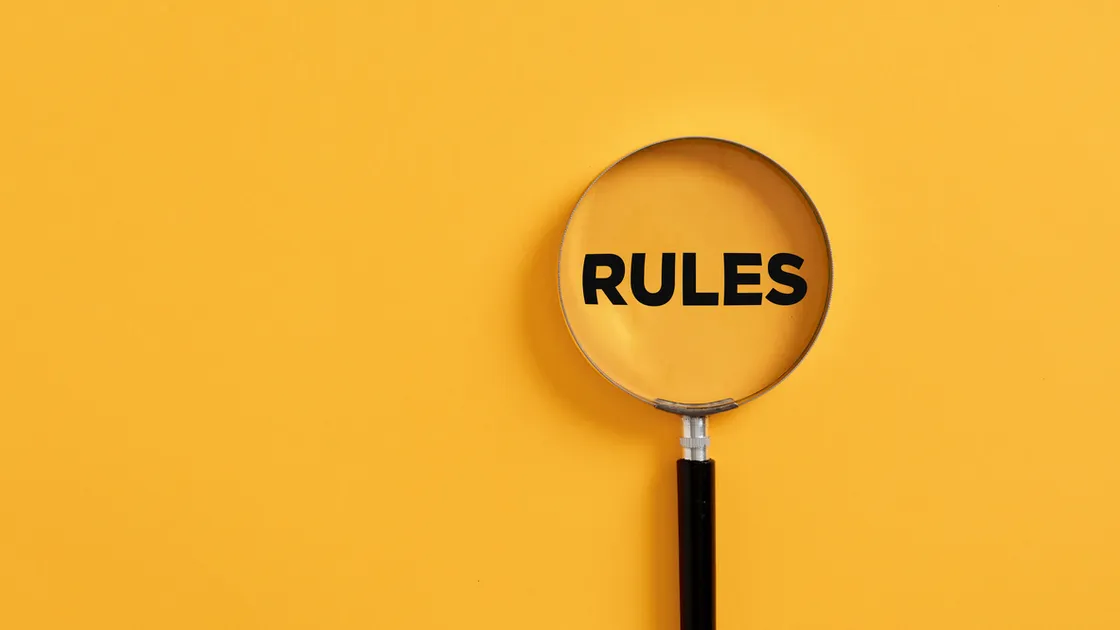What are The Rules of Influencer Marketing in Japan?

- 1. What Are Japan’s Rules on Stealth Marketing?
- 2. Why Was Regulation Introduced in Japan?
- 3. How to Ensure Compliance with the Rules
- 4. PR Disclosure Rules for Influencer Posts by SNS
Stealth marketing by influencers has become a significant societal issue. However, Japan introduced new measures in 2023 to address this concern, setting clear guidelines for influencer marketing.
The key regulation is rooted in Japan’s Premiums and Representations Act (Act against Unjustifiable Premiums and Misleading Representations), which mandates transparency in advertising by requiring clear PR disclosures. Violations of these rules can result in risks for businesses, making compliance essential.
This article explores Japan’s influencer marketing rules, highlights examples of failures, and provides tips to avoid penalties.
What Are Japan’s Rules on Stealth Marketing?
Japan has a regulation known as the “Stealth Marketing Law.”
The Stealth Marketing Law is a Japanese regulation that governs stealth marketing, which involves promoting products or services without disclosing that they are advertisements. This rule, formally called the Premiums and Representations Act (Act against Unjustifiable Premiums and Misleading Representations), came into effect on October 1, 2023.
For instance, if an influencer promotes a product online while pretending to be a regular user without labeling it as an advertisement, it falls under this regulation. Similarly, directing third parties to promote or post reviews about a product is also covered. Even if no monetary transaction occurs, such actions are likely to be considered violations.
Although this rule was enacted on October 1, 2023, it applies retroactively to actions taken before its enforcement. In cases of violations, the advertiser—not the influencer or the poster—becomes the target of regulation. Consequences include administrative penalties, orders for corrective action, and possible public disclosure of the company name. In severe cases, criminal charges may also apply.
The law stipulates penalties under Article 46 of the Premiums and Representations Act, which states:
“Up to two years imprisonment or fines of up to ¥3 million.”
source : 不当景品類及び不当表示防止法
Why Was Regulation Introduced in Japan?
The Stealth Marketing Law was created to protect consumers’ rights to make rational and autonomous decisions.
For example, if an influencer introduces a product provided by a company for promotional purposes as “my favorite,” followers might trust the recommendation and purchase it without realizing it is an advertisement.
In Japan, such actions—where celebrities or influencers hide the fact that they received benefits and promote products—have long been regarded as ethically problematic. With the introduction of this law, these actions are now clearly defined as illegal.
While the U.S. and EU countries already had regulations against stealth marketing, Japan lacked such rules until recently. As a result, the Premiums and Representations Act was established to ensure consumers can make informed product choices, addressing the need for proper oversight in advertising practices.
How to Ensure Compliance with the Rules
Since the enactment of the Stealth Marketing Law, influencers are prohibited from disguising advertisements as personal reviews or opinions. The Japanese Consumer Affairs Agency has specified the following as activities that fall under this regulation:
- Businesses posing as third parties to promote products.
- Directing third parties to promote or perform PR activities.
- Soliciting reviews or recommendations.
Importantly, monetary exchange is not a determining factor, so businesses must exercise caution in all related activities.
For example, if a Japanese influencer is asked to share a review on social media, it is essential to include hashtags like #PR or #広告 (advertisement) to clearly indicate the relationship. Transparency is crucial to avoid misleading consumers and ensure they understand the context of the promotion.
PR Disclosure Rules for Influencer Posts by SNS
In recent years, Japan has seen a shift from businesses disguising themselves as third parties to promoting products through influencers.
Influencers often have a large following, and if they fail to disclose promotional content as advertising, consumers may mistakenly believe the influencer purchased the product on their own accord. This creates an undue trust that can mislead consumers, which is why such practices are regulated in Japan.
Below are the PR disclosure rules for various social media platforms that marketing companies should thoroughly understand.
YouTube: Enable Paid Promotion Settings
YouTube’s rules are straightforward: content containing paid promotions must enable the “Paid Promotion” setting.
This requirement aligns with Google’s advertising policies and YouTube’s community guidelines. Influencers and brand partners must clearly understand the legal obligation to disclose paid promotions within their content.
The process is simple: while uploading a video, check the box labeled “Paid Promotion” in the settings screen. This ensures compliance with the platform’s regulations and transparency for viewers.
X: Clear and Transparent PR Labeling
Posts promoted through X’s advertising services are labeled with a “Promotion” tag.
To comply with X’s advertising policies, posts must have clear and transparent PR labeling. Posts that involve compensation, are part of commercial agreements, include affiliate links, or feature discount codes are considered paid partnerships.
When a post is classified as a paid partnership, failure to provide clear and transparent labeling may result in enforcement actions. To avoid violations, it is essential to ensure proper disclosure.
Instagram: Branded Content Label
Instagram requires the use of a branded content label for posts that involve discussing or featuring products at the request of a company.
Regardless of whether compensation is received, influencers must use this label. Adding hashtags like #PR or #Advertisement alone is insufficient; influencers must also configure the branded content label in their settings.
Once enabled, the label displays “Branded Content” beneath the influencer’s profile name in the post, along with the company’s name.
Unlike brand content ads (where companies repurpose influencer posts as their advertisements), branded content is shared directly through the influencer’s account. This labeling ensures the promotional nature of the post is immediately apparent.
Facebook: Branded Content Label
Facebook’s rules require the use of a branded content label, similar to Instagram.
When enabled, a “PR” label appears at the top of the post. For sponsored or unpublished ads, an “Advertisement” label is displayed, ensuring transparency.
Previously optional, these labels became mandatory following changes to Meta’s branded content policies, aligning Facebook with Instagram. It’s crucial to adhere to these updated requirements.
TikTok: Brand Content Settings
On TikTok, influencers conducting marketing campaigns must enable brand content settings.
When uploading a video, influencers can select “More Options” from the settings menu and toggle on “Brand Content” under the “Brand Content and Advertising” section.
This setting clarifies the commercial relationship between the influencer and the business, ensuring transparency. Proper configuration is essential for compliance and trust-building.
What is Gifting?
Gifting refers to a marketing strategy where companies send their products to influencers, allowing them to use the products and share their experiences with their audience.
The key advantage of gifting is that when a popular influencer shares their genuine experience, it resonates more effectively with their followers. This can enhance the perceived value of the product, increase attention, and lead to higher consumer interest without creating a sense of forced promotion.
However, gifting is also subject to regulation in Japan. Influencers must strictly adhere to PR disclosure rules when showcasing gifted products to avoid violations.
Examples of Influencer and Company Rule Violations
Japan’s stealth marketing regulations can be addressed simply by including proper labeling in posts.
Despite this, cases of rule violations in influencer marketing continue to emerge. Below, we provide examples of such failures to serve as lessons and improve compliance.
Influencers Promoting Breast Enhancement Supplements
A notable case involved Japanese influencers posting on Instagram about supplements that claimed to enhance breast size, which led to controversy.
The supplier provided products to over ten Instagram influencers, instructing them to introduce the supplements as regular products rather than labeling them as PR. The issue arose because the influencers’ posts implied definitive effects, such as increasing breast size—claims that could not be substantiated.
This use of influencer reach to mislead consumers was deemed a violation of Japan’s Premiums and Representations Act. Consequently, the marketing company responsible for the product faced a cease-and-desist order from the Consumer Affairs Agency.
Influencers Posting Illustrated Reviews of a Movie
Another example occurred after the release of a popular Japanese film. As part of its promotional campaign, influencers were invited to watch the movie and post illustrated reviews on social media.
Although the PR nature of the campaign was recognized internally, the company failed to instruct influencers to label their posts as advertisements. When multiple influencers posted reviews almost simultaneously, it appeared unnatural to viewers, leading to accusations of stealth marketing.
This incident highlights how poor communication and a lack of adherence to disclosure requirements can result in violations of Japan’s regulations.
Avoiding Risks with Specialized Companies
Even with the best intentions, both marketing companies and influencers can inadvertently breach regulations.
One significant challenge is that Japan’s rules are continually updated, making it difficult to stay informed with the latest requirements. To mitigate risks, businesses can work with specialized influencer marketing firms that are well-versed in the latest regulations.
Since penalties for rule violations primarily target the companies involved, thorough compliance strategies are essential. Japanese marketing agencies are particularly diligent in ensuring adherence to these rules, making them a reliable partner in avoiding legal pitfalls.
.png)






